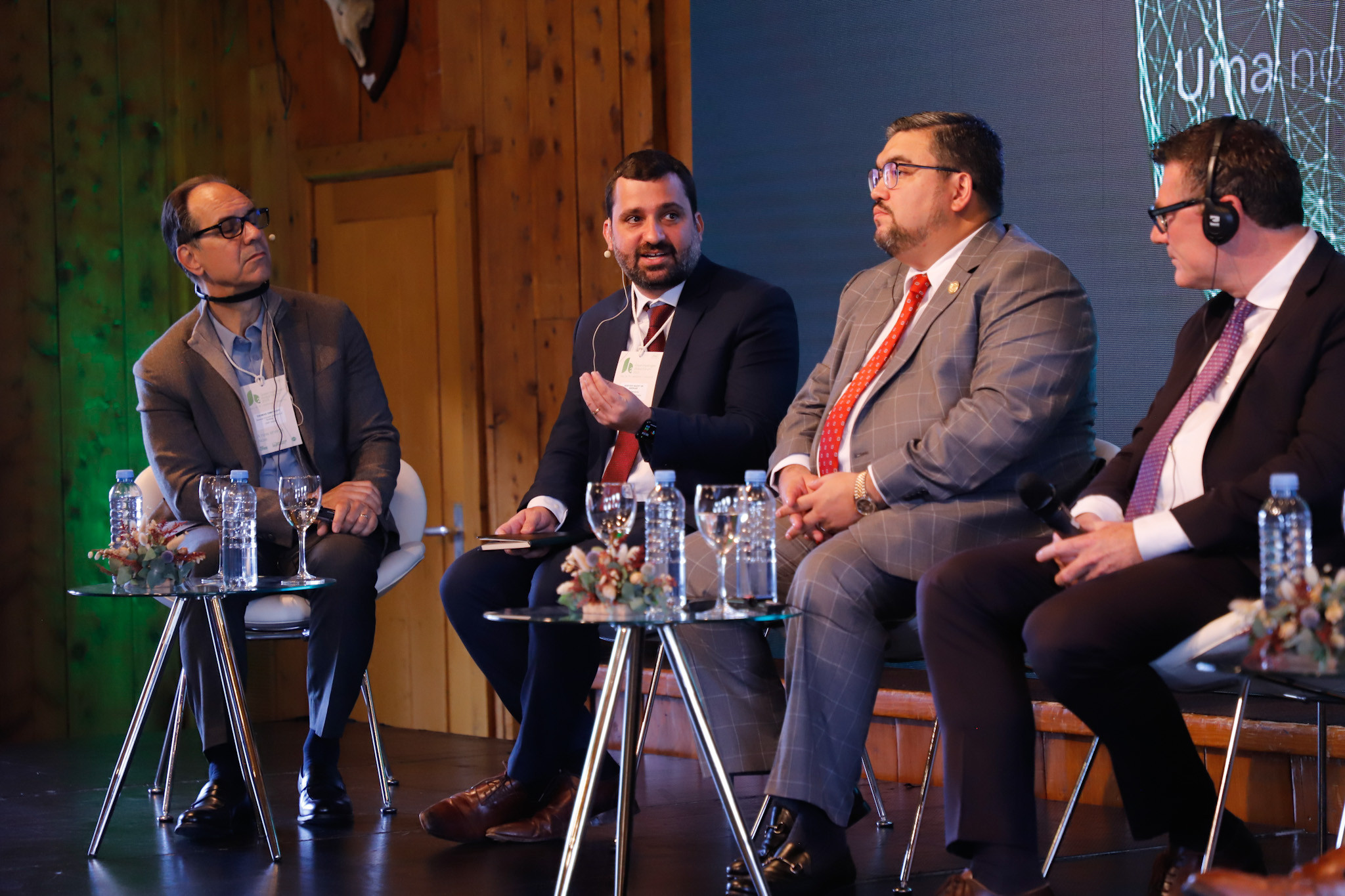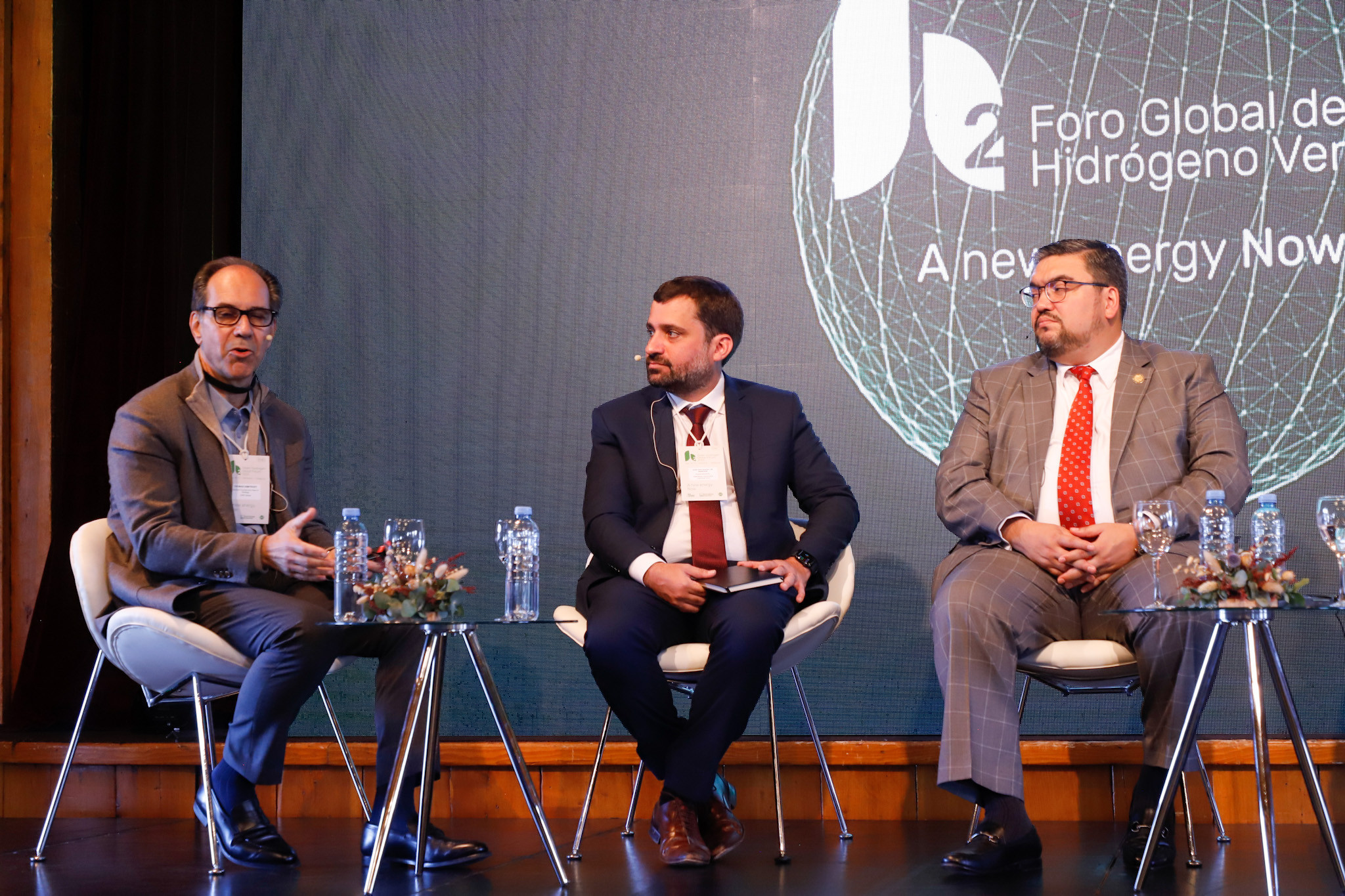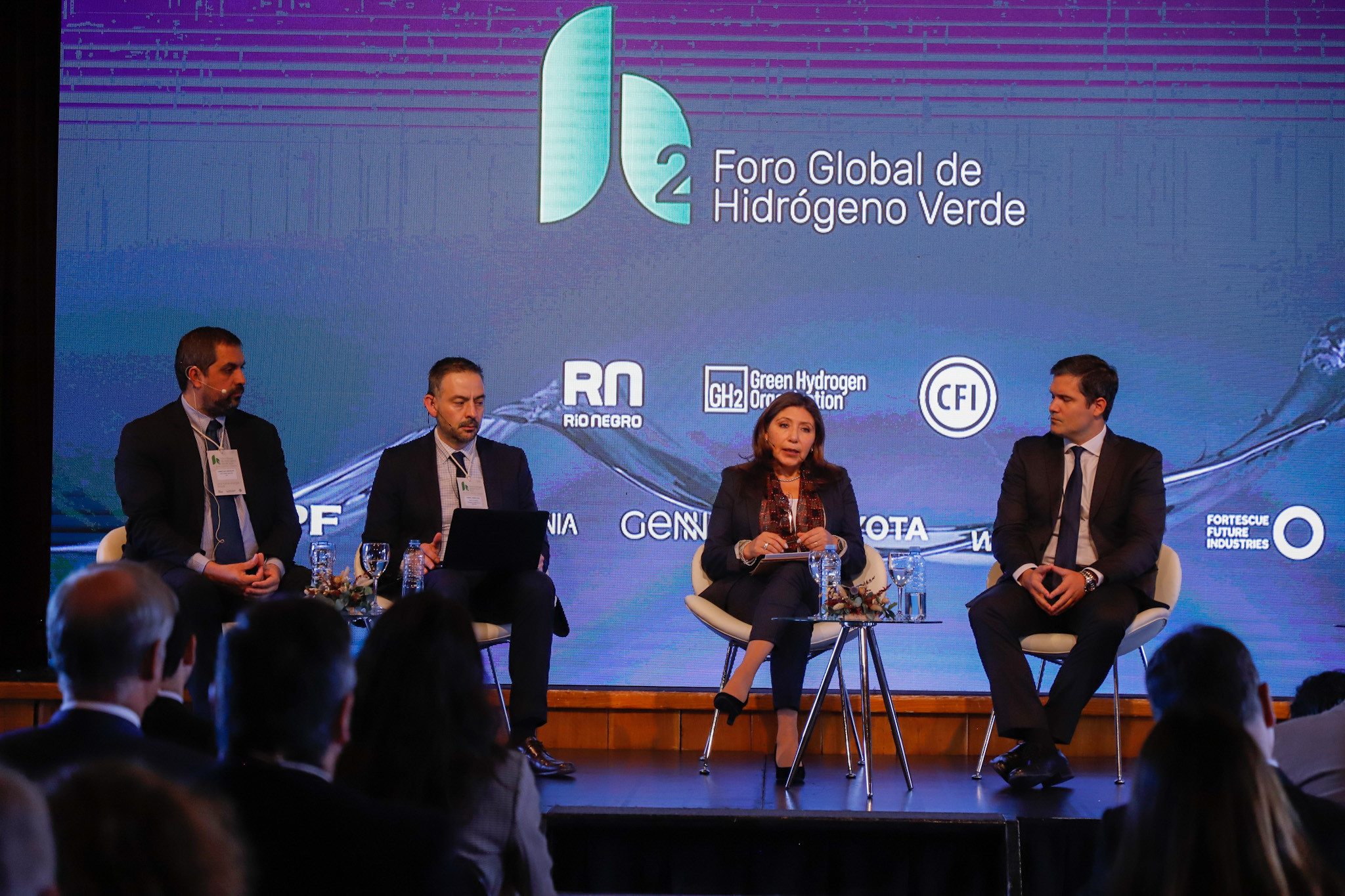Green Hydrogen
Green hydrogen potential in Latin America and the world
The first panel of the Green Hydrogen 2023 Global Forum, which is being held in Bariloche until tomorrow with outstanding international speakers on the subject, covered the topic "Green hydrogen potential in Latin America and the world". Experts from Guatemala, Brazil, Germany and Argentina agreed on the opportunity that the region has.
Fecha: 18 de mayo de 2023
The event had the participation of distinguished speakers such as Malcom Turnbull, president of the Green Hydrogen Organization, who spoke virtually, as well as Francesco La Camera, director-general of the International Renewable Energy Agency.
Alberto Pimentel Mata, Minister of Energy and Mines of the Government of Guatemala; Stefan Kaufmann, Hydrogen Executive Advisor; Thomas Dimitroff, General Counsel and Head of Strategy were part of the panel. Also, Silvio Pastore, Director of the Office of Geocryology, Glaciology, Nivology and Climate Change Studies of the National University of San Juan and Gustavo Naciff de Andrade, Deputy Superintendent of the Empresa de Pesquisa Energética, were also present. The moderator was Jonas Moberg, CEO of the Green Hydrogen Organization.

Energy and development
Turnbull stressed the leadership of Governor Arabela Carreras on the issue of Green Hydrogen and the organization of the Forum. At the same time he emphasized that "we must develop all the potential in this continent, we cannot think about energy and development, nor in facing global warming without Green Hydrogen".
He also mentioned that he estimates that "by 2050 hydrogen production will increase seven times as much as all the associated industries. In Latin America we have the sun, wind and hydroelectricity, all the resources we need; it is one of the leading Latin American regions in renewable resources".
At the same time, he added, "there are 12 Latin American countries with green hydrogen strategies, with Argentina, Chile, Brazil and Colombia at the forefront with large-scale projects, and the European Union looks to the continent as a supplier of green hydrogen and ammonia".

"It is a great opportunity"
On the other hand, La Camera explained, "Latin America has a great opportunity, it is an ideal region for the production of green hydrogen, there is great local demand with large renewable energy resources".
Moreover, he said, "we must take into account that ambitious plans must have an increase in capacity for the generation of electricity infrastructure, build ports, and ensure compliance with standards and regulations with sustainability criteria".
He also mentioned the importance of "collaboration between public and private; public institutions are key to create regulations that drive and ensure that communities benefit from these projects by creating more jobs and training, and the private sector in the creation of a successful business model".
Guatemala's experience
Mata then shared Guatemala's experience in renewable energy. Moreover, how it will move forward with a strategy that include green hydrogen. "Seventy-five percent of energy comes from hydraulic potential and there are also experiences in solar energy, among others. In our energy policy for 2030, we hope to reach 80 percent. And we plan to continue adding new energy sources where hydrogen is a clear option, for which we have already advanced in regulations and declarations".
At the same time, he explained, "we export energy to Mexico and the rest of Central America and we have a possibility to grow 4 or 5 times with large investments and have a greater installed capacity, we hope to be hydrogen exporters as well. We already have the legislation, now is the challenge for the world to know our potential and to get investments".
An endless number of resources
Andrade, talked about the experience in Brazil, and said, "We can cover 14 times the current demand, it is a potential in which we work. We have many resources and very cheap renewable electricity, so we have a good environment to develop".
He also mentioned, "for us this is not a new issue, we have been talking about it since 2005, so we have a hydrogen ecosystem where we gather knowledge and skills to follow projects on a commercial scale in Brazil. We have a very important agribusiness sector with great potential.

Germany, with an eye on the Patagonia
Kaufmann, during the panel, explained that Germany will have a great demand for green hydrogen and they expect to grow and replace energies. He also stressed, "We need a hydrogen supplier for 2026, we are talking to many companies, we are looking for cheap prices, there are many projects from many countries, from 2030 the demand for hydrogen in Germany and the world will increase a lot".
Dimitroff mentioned, "We focus on Patagonia for production and we will support the tax regimes so that developers can carry out their projects, taking into account the international treaties in force in this regard".
Finally, Pastore said, "hydrogen is an opportunity that we have to take, for this we must develop technology, identify skills and political leaders, and provide scientific research.
Second panel
In the second panel of the Global Green Hydrogen Forum 2023, a group of specialists discussed "Financing the Sustainable Transition to a Green Hydrogen Economy".
The speakers were Christiaan Gischler, Lead Energy Specialist of Inter-American Development Bank; Patricia Alborta, representative of CAF-Development Bank of Latin America in Argentina; José Ignacio de la Vega, Corporate Executive Manager of Banco Patagonia and Gabriel Jorge Terrés Cruz, Head of Foreign Affairs of the Mexican Embassy in Argentina. The moderator was María Paz de la Cruz, Board member of Green Hydrogen Organization.



